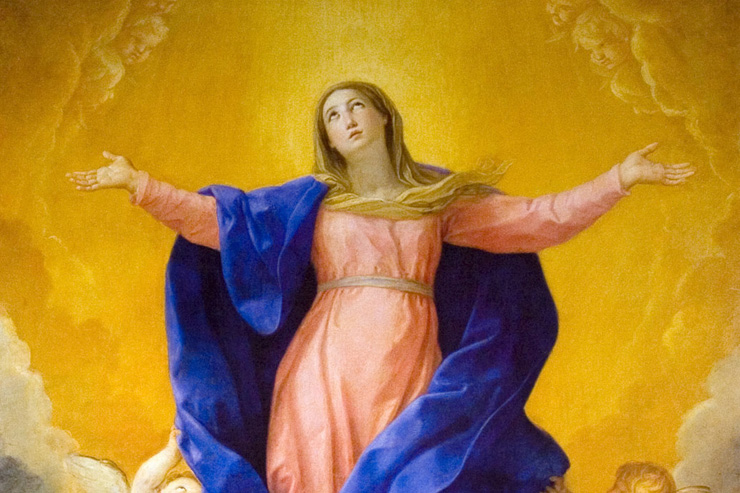Today we celebrate Mary being taken up, body and soul, into Heaven at the end of her life here on earth. She reminds us today that life is not truly taken away; it simply changes and, for those who have persevered in the faith like Mary, it blossoms into an eternal and glorified life: in the Eastern Churches this solemnity is known as the Feast of the Dormition, commemorating when Mary simply went to sleep.
Mary’s Assumption consoles us with the confidence that those who face the end of the earthly phase of their life have nothing to fear if they have lived it well. Even if they haven’t lived it well, when the end of life here below comes all they have to do is entrust themselves to the Lord’s mercy and they’ll have nothing to fear. Christian faith and hope in the Resurrection and eternal life help us and our loved ones to face the end of life here below with serenity, no matter how tragic the circumstances.
Our Blessed Mother has simply moved, and, as so many apparitions attest, she is still very active in making sure all her children will join her one day, body and soul, in Heaven. Through Mary’s intercession let’s pray for the grace of a good life and for the grace of a Christian hope that doesn’t fear death.
Readings: Revelation 11:19a, 12:1–6a, 10ab; Psalm 45:10–12, 16; 1 Corinthians 15:20–27; Luke 1:39–56. See also Visitation of Mary, 4th Sunday of Advent, Cycle C, Advent, December 22nd, Advent, December 21st, and Assumption, Cycle B.


